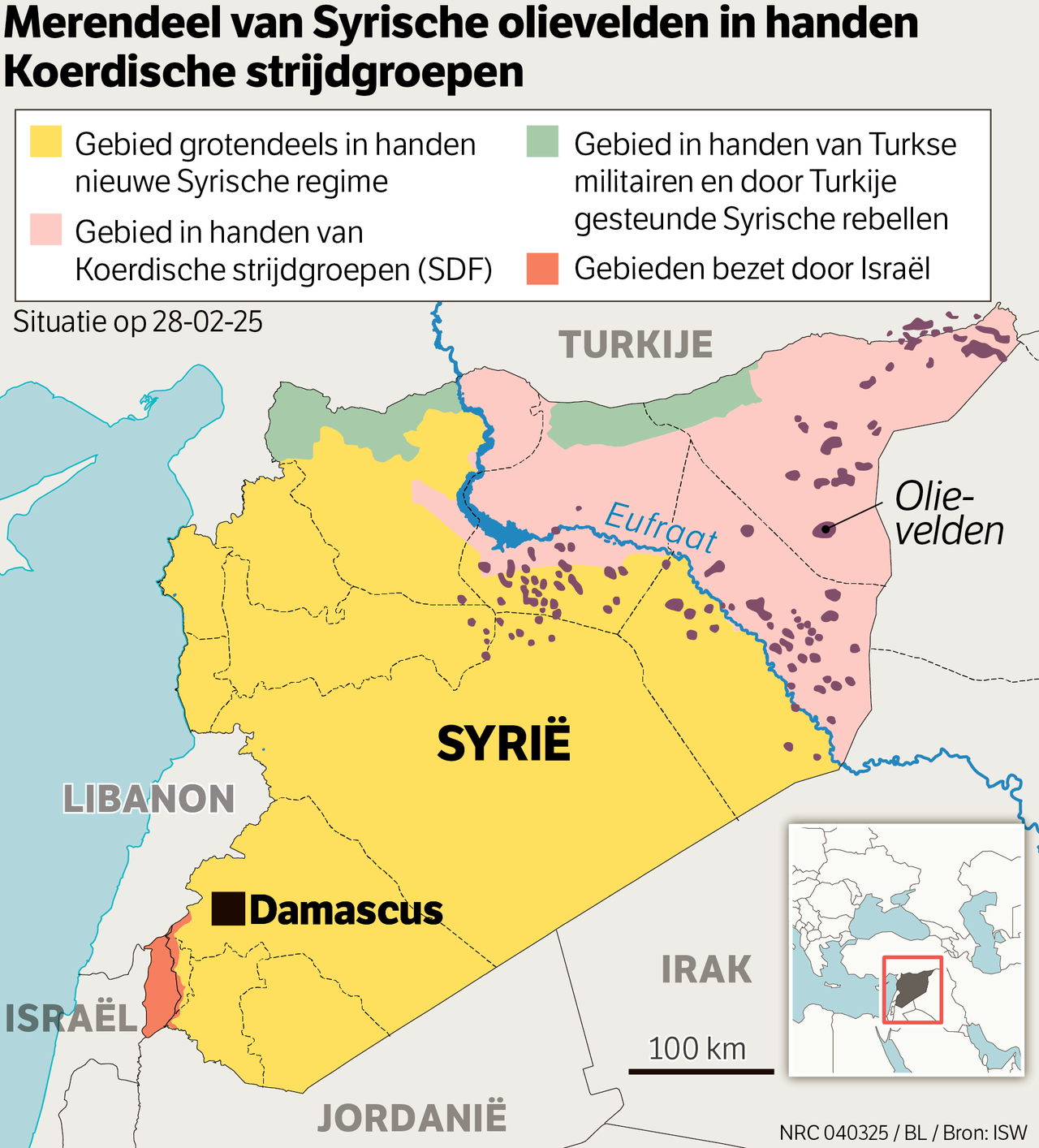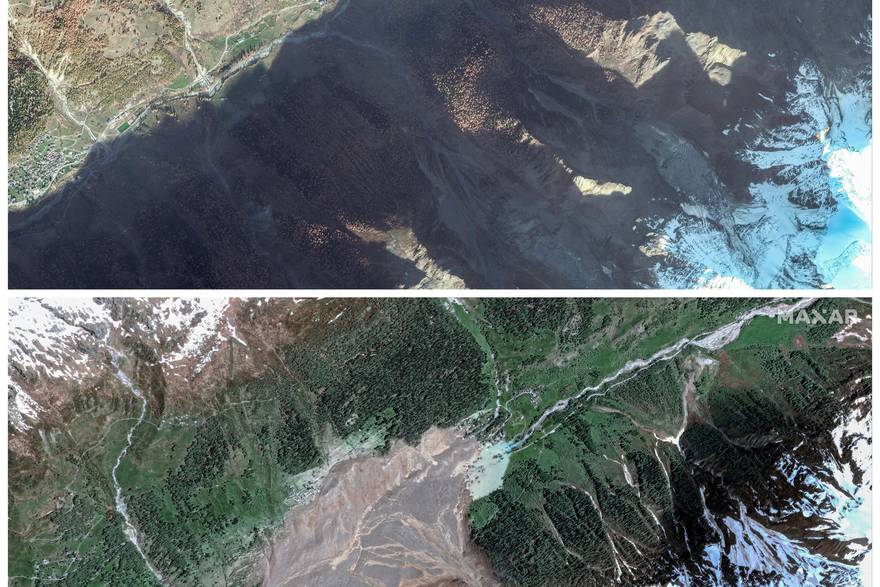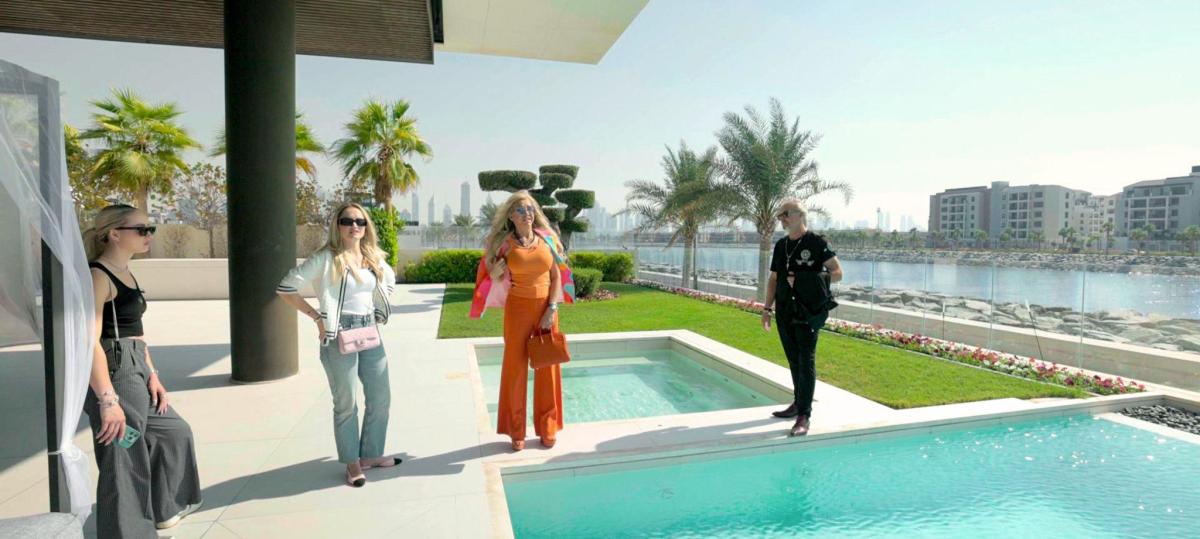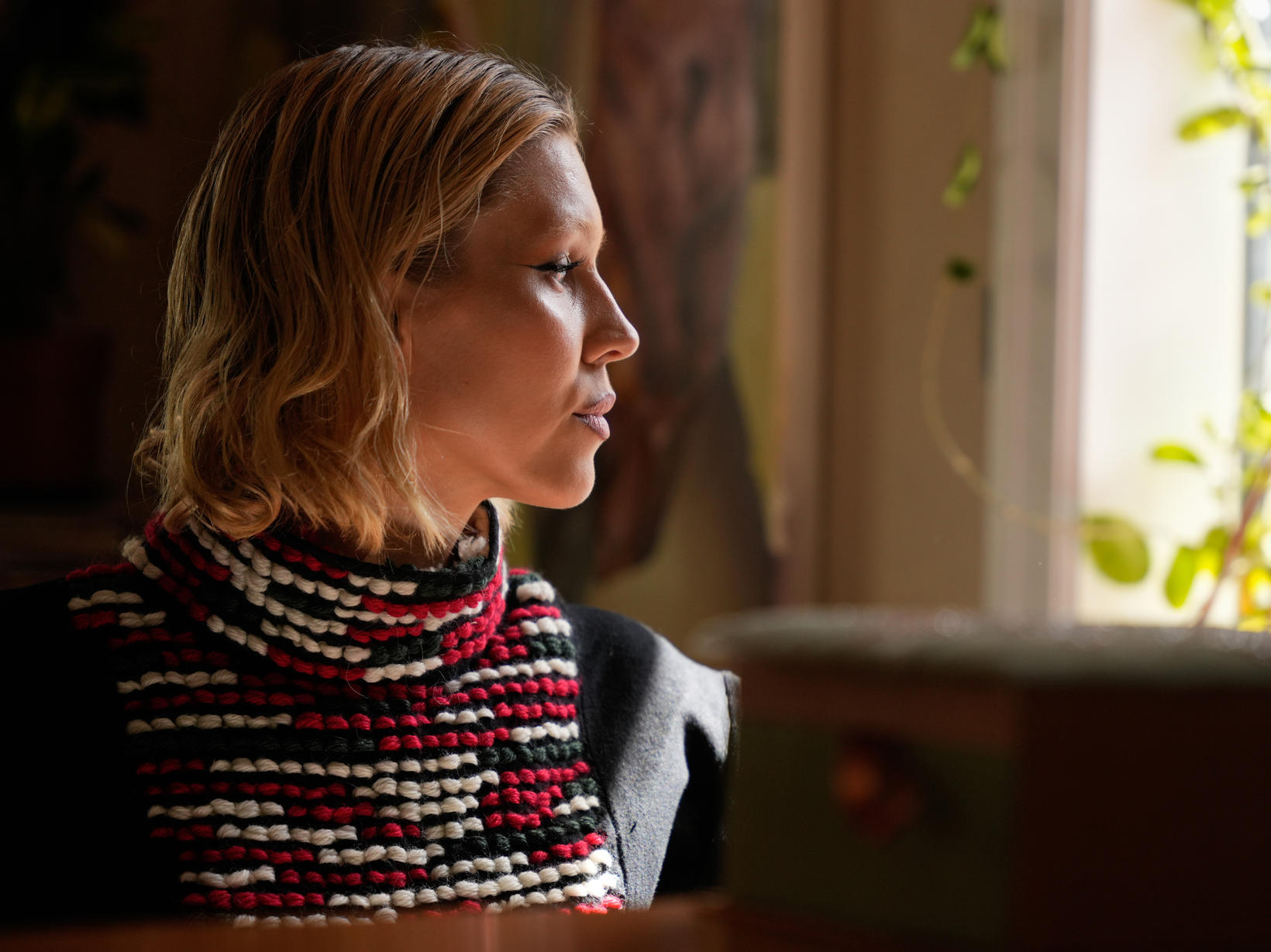War damage, applies and persistent sanctions. The reconstruction of Syria is a huge job

After the fall of the Bashar al-Assad regime, Syrians dare to dream of a new start and the reconstruction of their country. But that doesn't get easy. Large parts of the country are in ruins. More than 90 percent of the population lives below the poverty line. Millions of people are without work or have fled abroad.
If current economic growth persists – in the last five years an average of 1.3 percent – Syria will only reach the gross domestic product from before the war in 2080. The Development Organization of the United Nations UNDP announced this last month. At the same time, attempts from the new regime to stimulate the Syrian economy bring their own problems again.
While the world is still speculating about who the new Syrian leader Ahmed Al-Sharaa is exactly-Democrat, Autocrat or Jihadist-the former rebel leader emerges as advocate of the free market. « The socialist system has many disadvantages, » said Al-Sharaa recently in an interview with Syrian television. His government starts in any case with the privatization of the many state-owned companies from the erk Assad. The aim is to attract foreign investments. The Syrian Foreign Minister Asad Hassan Al-Shabani also brought that message at the World Economic Forum in Davos at the beginning of this year.
Penal measures
In the meantime, the liberalization of the national economy is not going without pain. Thousands of civil servants have been fired, and bread is ten times as expensive now that the state no longer subsidizes it. However, entered products have become cheaper because the high import duties from the Assad era are often deleted. On the other hand, local producers who have to compete with such things have gotten harder.
It is also not the case that products have become more accessible to Syrians. The price of import goods may have fallen, there is an acute shortage of cash. That is why consumers are not allowed to include more than 200,000 Syrian pounds (around 14 euros) in cash every day. This is difficult especially in the expensive Ramadan month.
Some relief came from Russia last month in the form of an aircraft load freshly printed money. Although the country houses the fled Assad, of whom it was a good ally, Syrian pounds are still produced in Russia. And the new Syrian regime also depends on that. Analysts warn that Russia may also be able to set up as an ally for the new rulers, now that the West will continue to linger with relief from the sanctions that the Syrian economy is still taking hostage.
Analysts warn that Russia can argue as an ally
Although the European Union started last week with relaxation of sanctions against Syrian banks, energy and transport companies, the West is still suspicious of the new rulers. The US sanctions are still almost intact. And of those American measures, once intended to get the Assad regime to the knees, is the most trouble. Based on the so -called Caesar Act, everyone who does business with Syria risks penal measures. This allows companies to lose their access to the American market – for most companies a lot more important than the Syrian. And so foreign investors stay away, despite the new privatization policy in Syria.
Drug economy
Before the war, Syria had a relatively diverse economy that leaned on agriculture, industry, oil production and tourism. From 2011 it became disrupted by war and sanctions. The Assad family and the rest of the Syrian elite then resorted to production and export of the synthetic drug captagon. Billions of pills from dozens of Syrian drug labs flooded the region. According to the American think tank The New Lines Institute, that the then rulers yield 2.4 billion dollars annually. According to the World Bank, it was « the most valuable sector within the Syrian economy. »
The new regime is now busy rolling up the drug factories and smuggling networks. But return to the pre -war economic model does not just go, although the sanctions would disappear quickly and foreign investors come across. Thirteen years of civil war has also made Syria difficult to control. Several parts of the country were in the hands of various battle groups, each with their own economic model, rules and civil servants. It is up to the new government to forge one of them.
For that, she will above all have to reach an agreement with the Kurdish battle groups that are in charge in the northeast. In that area, which covers more than a quarter of Syria, there are fertile agricultural land and the majority of national oil fields. Negotiations with the Kurds about merging these areas in the rest of the country are difficult.
That is a problem for Damascus. The regime can use the oil well, says Mohamad Ahmad, economist at consultancy firm Karam Shaar Advisory. During the war its production fell back to a tenth of what it was. As a result, Assad had to have oil delivered from Iran.
Some media incorrectly present oil as a medicine against Syria's economic problems, says Ahmad. If Syria restores its oil infrastructure, it can become self-sufficient again, according to the economist. But a large oil exporter will no longer become the country: « The reality is not there ».


/s3/static.nrc.nl/images/gn4/data133009942-8ac92b.jpg)
:format(webp)/s3/static.nrc.nl/wp-content/uploads/2024/12/20123214/data125690560-fdc759.jpg)




